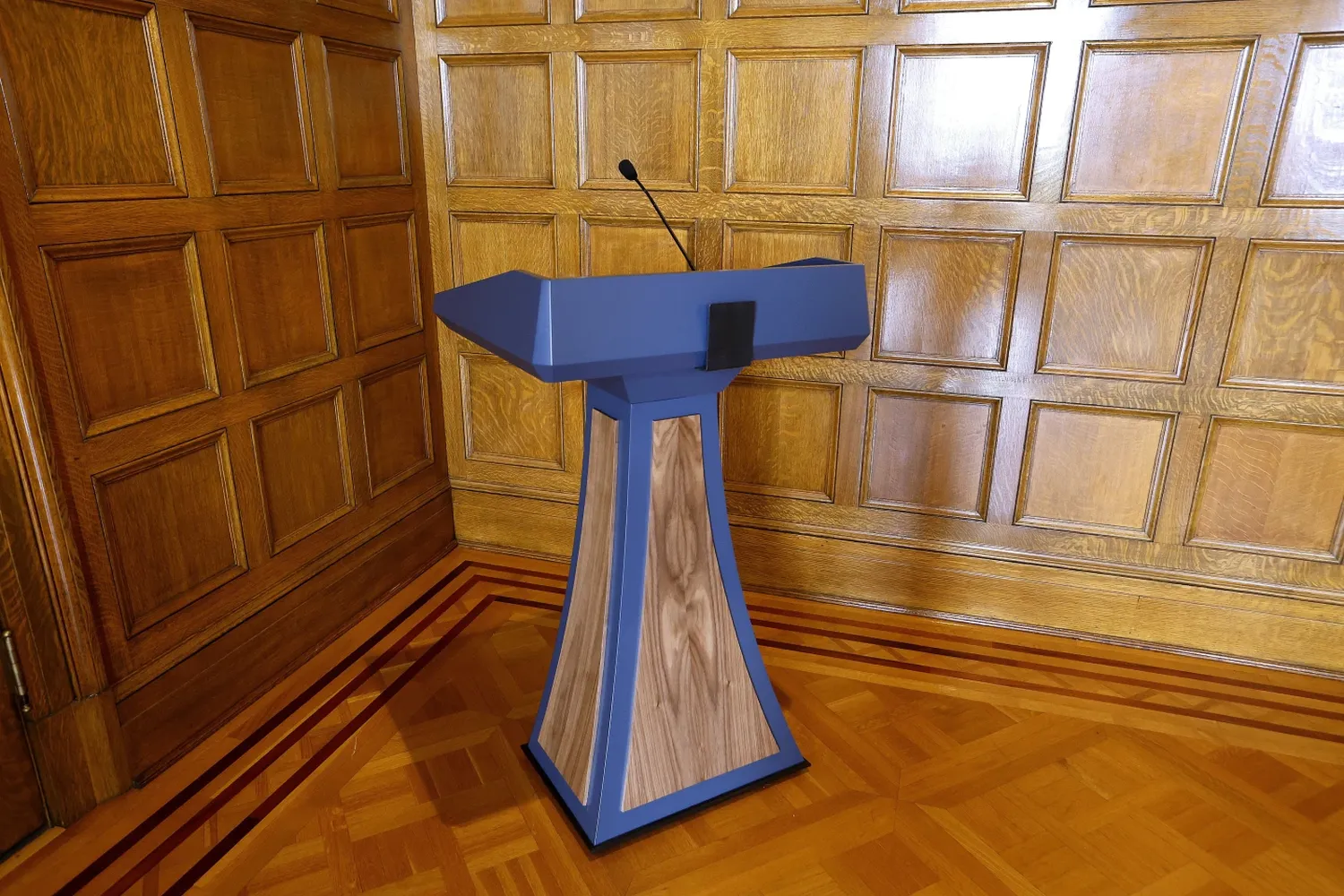Government Expenses
Arkansas Governor potentially violated laws with $19,000 purchase
LITTLE ROCK, Ark. – An audit conducted by Arkansas legislative auditors has raised concerns about potential legal violations by Governor Sarah Huckabee Sanders' office in the purchase of a $19,000 lectern. The report, which scrutinized the procurement process, suggests that the governor's office may have breached state laws related to purchasing, property, and government records.
The audit, released on Monday, has been forwarded to local prosecutors and the state attorney general for further examination. The findings have prompted a scheduled hearing on Tuesday where lawmakers will discuss the implications of the report.
The controversy began when it was revealed that the governor's office had acquired a custom-made lectern, complete with a traveling case, from Beckett Events L.L.C., an event management company. The purchase was made in June 2022 using a state-issued credit card, which drew attention due to the high cost and the lack of transparency surrounding the transaction.
The audit report pointed out several potential legal infringements, including the improper shredding of a document that should have been preserved under state records laws and issues with the procurement process itself. The legislative auditors have indicated their intention to forward the report to the Sixth Judicial District prosecuting attorney and to the office of the state attorney general, Tim Griffin.
Despite the findings, Governor Sanders' office has dismissed the audit as "deeply flawed," maintaining that no laws were broken. The governor's office has characterized the audit as a waste of taxpayer resources and time. The governor herself appeared to mock the controversy in a video montage shared on social media.
The purchase of the lectern has been a subject of intense scrutiny and debate, with state lawmakers approving the audit last year in response to the controversy. The audit's revelations have sparked a public reaction, with citizens and political commentators weighing in on the implications for the governor's reputation and the legal ramifications of the findings.
The state attorney general, Tim Griffin, has previously stated that state purchasing laws do not apply to the governor and other executive branch officials. This statement has added another layer of complexity to the situation, raising questions about the applicability of the laws in question.
The audit has also highlighted the importance of transparency and adherence to legal procedures in government spending. The purchase of the lectern, while not an enormous expense in the context of the state budget, has become emblematic of broader concerns about fiscal responsibility and the proper use of public funds.
As the story unfolds, the public awaits the outcome of the hearing and any subsequent legal actions. The governor's office's response to the audit and the public's reaction will likely continue to be a topic of discussion in Arkansas politics.
The case of the $19,000 lectern serves as a reminder of the scrutiny public officials face regarding their stewardship of taxpayer money. It also underscores the role of audits and legislative oversight in ensuring that government actions are transparent and within the bounds of the law.
The upcoming hearing is expected to provide further details on the audit's findings and offer a platform for both the governor's office and legislative auditors to present their perspectives. The legal and political ramifications of the audit could have lasting effects on the governor's administration and on the practices of government procurement in Arkansas.

